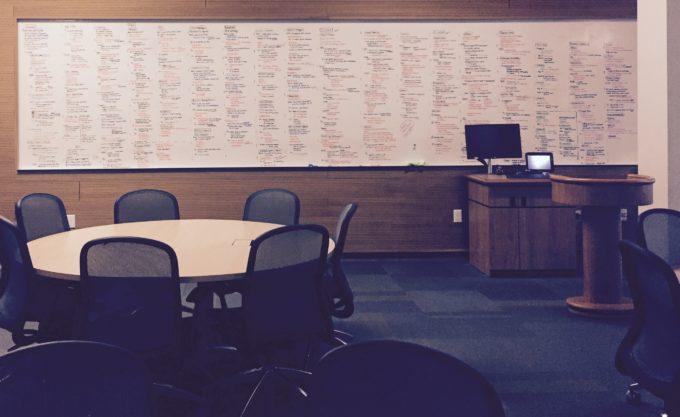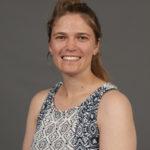
Get the latest articles delivered directly to your inbox!
Our Contributors
Class of 2022
Kyle Duke
Austin Foster
Charlotte Leblang
Ross Lordo
Class of 2021
Dory Askins
Connor Brunson
Keiko Cooley
Mason Jackson
Class of 2020
Megan Angermayer
Carrie Bailes
Leanne Brechtel
Hope Conrad
Alexis del Vecchio
Brantley Dick
Scott Farley
Irina Geiculescu
Alex Hartman
Zegilor Laney
Julia Moss
Josh Schammel
Raychel Simpson
Teodora Stoikov
Anna Tarasidis
Class of 2019
Michael Alexander
Caitlin Li
Ben Snyder
Class of 2018
Alyssa Adkins
Tee Griscom
Stephen Hudson
Eleasa Hulon
Hannah Kline
Andrew Lee
Noah Smith
Crystal Sosa
Jeremiah White
Jessica Williams
Class of 2017
Carly Atwood
Laura Cook
Ben DeMarco
Rachel Nelson
Megan Epperson
Rachel Heidt
Tori Seigler
Class of 2016
Shea Ray
Matt Eisenstat
Eric Fulmer
Geevan George
Maglin Halsey
Jennifer Reinovsky
Kyle Townsend
Join USCSOMG students on their journeys to becoming exceptional physician leaders.

How Do You Have Faith in Medicine When It Failed You
One of my most scarring moments from my childhood was opening my plastic lunch bag at school and seeing carrots and apples instead of Cheez-its and Dunkaroos. I longed for white bread sandwiches with the crust cut off, but instead got whole grain “heel” pieces with something healthy stuck in the middle. We grew up privileged with the knowledge that eating healthy and exercising would bring us lengthy and prosperous lives. As long as I can remember, we did everything right. We exercised daily, ate balanced meals, went to the doctor and dentist regularly (and flossed!), and supported each other unconditionally. We had faith in preventative medicine and in return we expected it to look after us.
When cancer struck our immediate family, no one could process it. We grasped at moments, looking for a reason why one of the most rare cancers in the world came after us – it must have been that one summer 38 years ago working in a coal mine. I remember the doctors at MGH and Dana-Farber, some of the best in the world, telling us two things: first, we had at most a year left, and second, they didn’t have a protocol and were going to make it up as they went along, so to say. All of this intelligence, research, resources, and passion, and that was their response to the diagnosis? Within a year, medicine had failed us, and my father was gone.
How do you have faith in medicine when it has failed you? Through everything, I was traveling around the country convincing interviewers how I believed in medicine, and how I believed in the path I wanted to take for the rest of my career. And now I’m here, learning the science that I had once thought was never going to wrong me. Science, facts, and medicine were all there for me growing up; a steady hand in a wild world of opinions, politics, and pressure. Now, my innocence has been shattered.
The UofSC School of Medicine Greenville has been there for me in this time of doubt. Like any good support system, they’ve plugged along, patiently waiting for me to regain my faith in medicine. I realize that perhaps medicine has not failed me and my family. Medicine gave us a full year together, and although I don’t know what would have happened without it, I am grateful. There was a team of doctors, nurses, and healers who used their knowledge to give us the most quality and quantity of time they could. Even though we didn’t have the medicine to save our family from loss, we had the medicine to try. There was hope, effort, love, and strength.
From palliative care to the top cancer doctors in the country, our team was amazing. The medical community gave us the most it could with what we presented it. So yes, medicine initially failed us, but the community I am now a part of helped save us. The UofSC School of Medicine Greenville has given me the knowledge so I can be there for other families through their tragedies and triumphs. I can move forward now, knowing that even if the resources aren’t there yet, we as doctors will give all the effort we can to our patients, and in the end that is what will be appreciated. So, as medicine advances and I study for this career with renewed hope, I will occasionally be eating Cheez-its and Dunkaroos.
Charlotte Leblang is originally from Swampscott, Massachusetts and had just enough thoughts and opinions to get her through four years at a liberal arts college. A washed-up athlete, she spends her free time pushing her physical limits, watching TV, and complaining about trivial things. She’s been slowly adjusting to the Southern politeness by adding “hope you had a nice weekend” to the beginning of her emails.
Copyright 2021 USC School of Medicine Greenville


